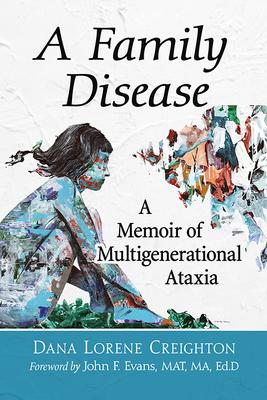Dana Creighton and her mother both were affected by the same inherited cerebellar degeneration, known as ataxia--a loss of control over body movements. Both were treated by a healthcare system that failed them in different ways. Yet their experiences were disparate.
Creighton eventually found the right tools to piece together meaning in her life; her mother resisted accepting her condition, in part because doctors repeatedly said nothing was wrong with her. Twenty-five years after her mother's suicide, Creighton's memoir finds striking similarities and differences in their lives and traces a lineage of family trauma.
Drawing on research in neuroplasticity, medical records, personal correspondence and genealogy, the author highlights the gap between the lived experience of a debilitating ailment and the impersonal aims of clinicians. She shows how the stories parents tell themselves about living with a genetic disorder influences how they communicate it to their children.
